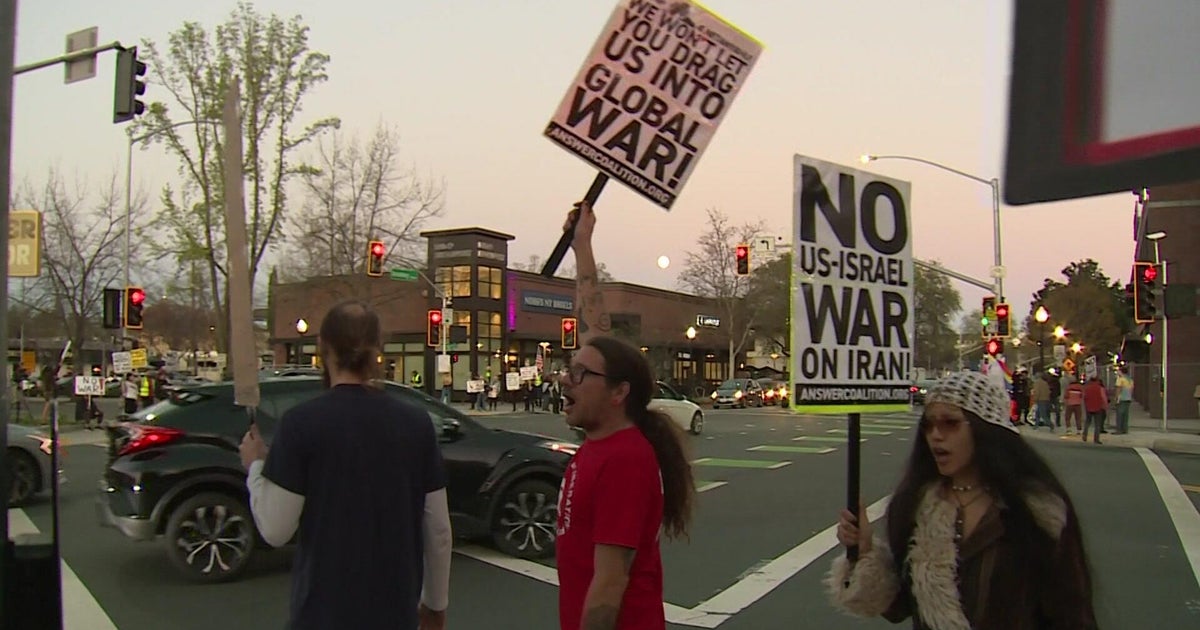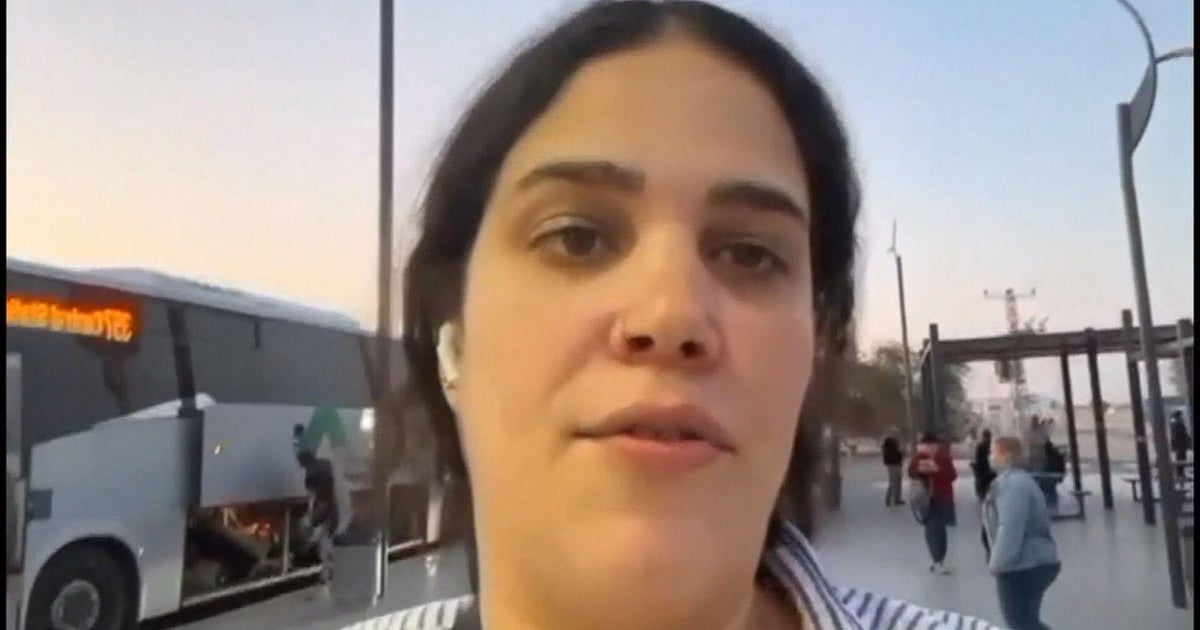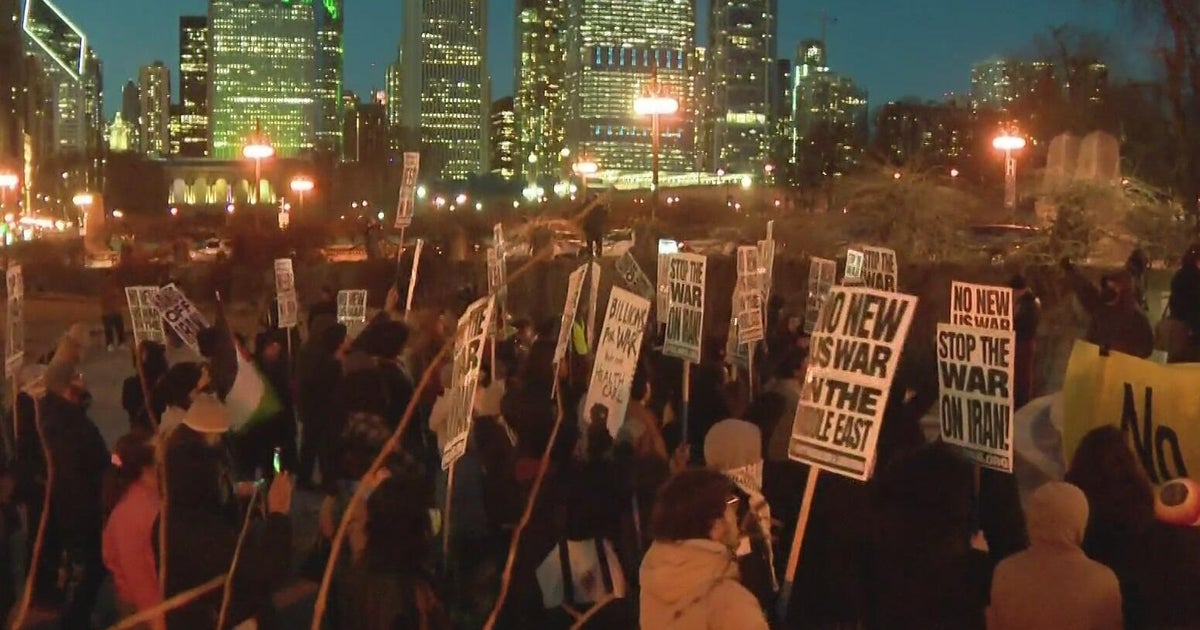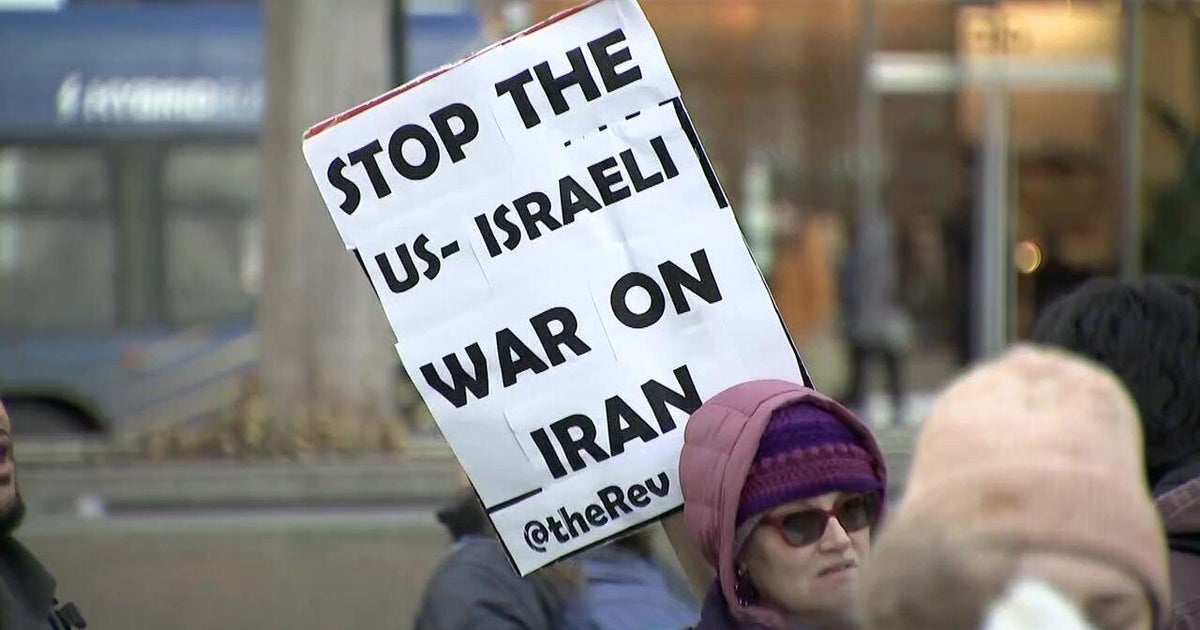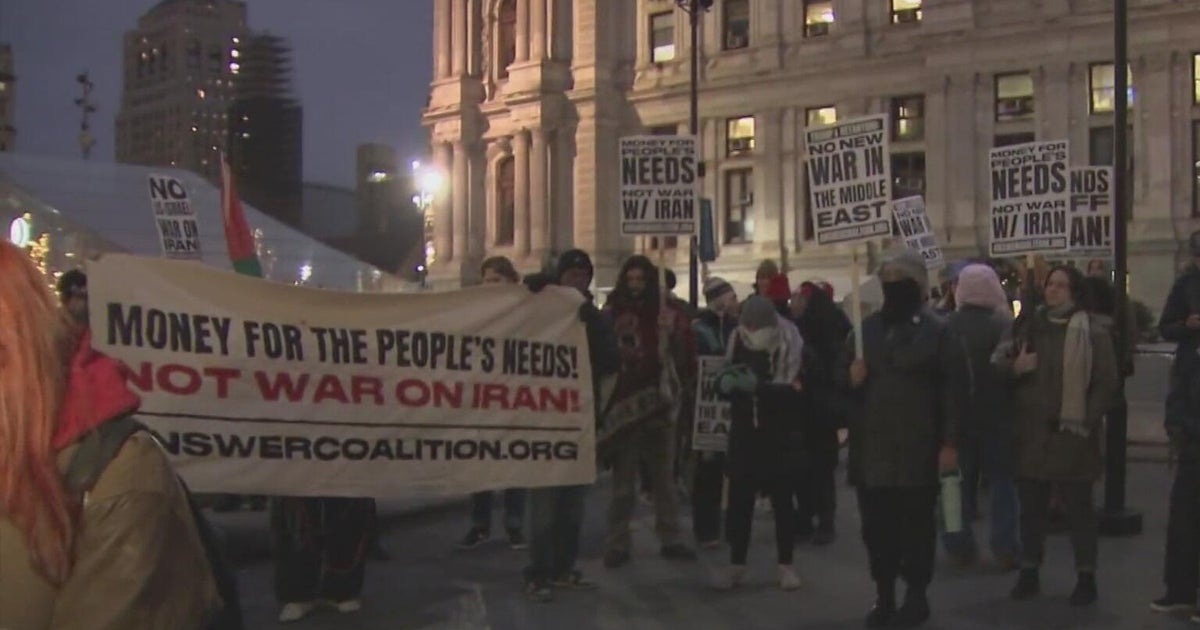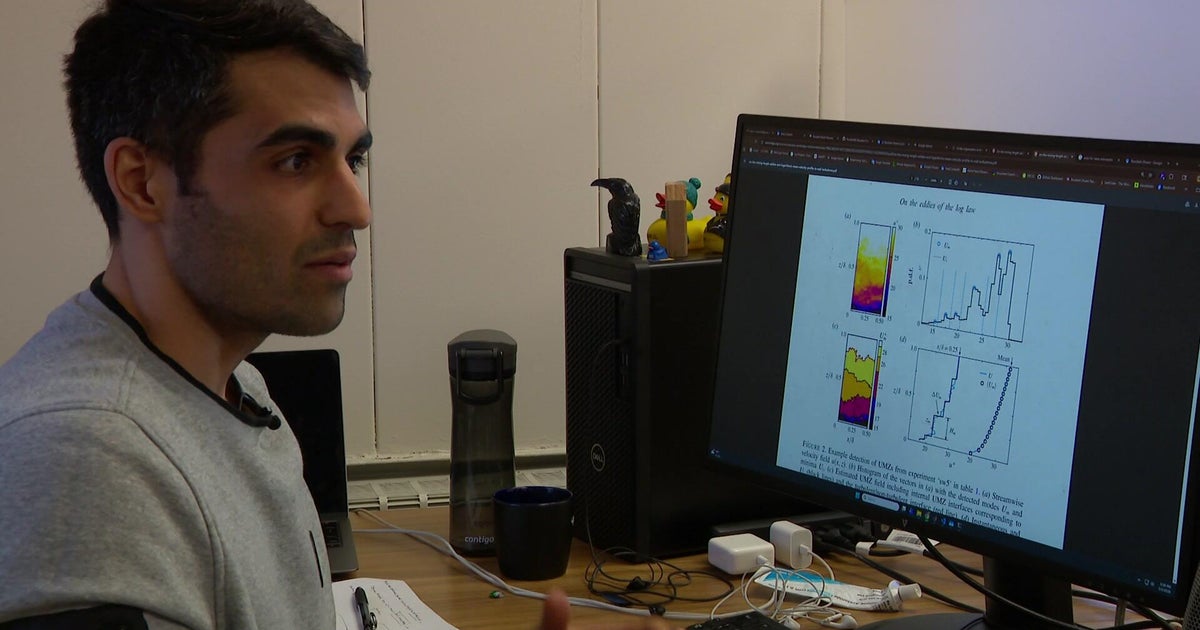Talks between pro-Palestinian protesters, University of Chicago suspended
CHICAGO (CBS) -- Encampments at the University of Chicago entered a second week Monday – with negotiations at a standstill between the university and UChicago United for Palestine protesters.
On Monday afternoon, all was calm at the encampment on the Main Squad. The protesters want the university to divest all funding to companies profiting from the war between Israel and Hamas – like Boeing and other manufacturers supplying weapons used in Israel.
"We are standing strong," said U of C grad student Safia Mahjebin. "This last week has come with a lot of trials and tribulations."
Mahjedin has spent countless hours on the encampment at the Quad over the past eight days.
"We are steadfast, as the Palestinian people are steadfast. We are hopeful, as the Palestinian people are hopeful," said Mahjedin, "and we will continue to fight for the Palestinian cause, just like we fight for other human rights issues and civil rights issues, until we are all free."
The encampment has been in place at the U of C since Monday of last week. It was first set up on the Main Quad just north of Swift Hall and has been growing ever since. The students are part of a nationwide movement calling for immediate divestment from companies profiting from Israeli business amid the war in Gaza.
The protesters want the university to divest all funding to companies profiting from the war between Israel and Hamas – like Boeing and other manufacturers supplying weapons used in Israel.
Talks between the pro-Palestinian protesters and the University of Chicago were "suspended" Monday.
The school's Faculty for Justice in Palestine – a group of more than 120 faculty and staff calling that is involved in the encampment protest – claimed the university issued a midnight Sunday night deadline for taking down the encampment. The group gathered Monday morning on the steps of Edward H. Levi Hall, the U of C's administration building at 5801 S. Ellis Ave., in anticipation of the dismantling of the encampment.
But a university spokesperson said, while talks with protesters have been suspended, there is no truth to claims of a midnight deadline to dismantle the protests.
Faculty for Justice in Palestine has promised to support University of Chicago student protesters as the encampment continues to grow, going so far as to say they are willing to be arrested if it comes to that.
"As faculty members, we will protest the safety of our students if our administration attempts to violently remove them - even of that means arrest and detention," said Elham Mireshghi, an assistant instructional professor in the Divinity School and the College at the U of C.
Meanwhile, members of the group still fear that the university will take down the encampment and end the protest.
"When all of this is over, the University of Chicago will have to answer for its principles," University of Chicago associate professor Anton Ford said. "Our most immediate concern is for the well-being of our students. We don't want them getting beat up just because they're camping on the lawn."
"We are grateful for the solidarity that the faculty have shown us, and it is a testament of the popularity of this movement," said Mahjebin. "That's the faculty, and the students have come together along with community members to stand up for the Palestinian calls and to protect freedom of speech on college campuses."
On Friday, campus police in riot gear separated protesters who are part of the UChicago United for Palestine encampment and a group of counter-protesters carrying American and Israeli flags, following a clash between the two groups.
This came hours after University of Chicago President Paul Alivisatos wrote that the encampment was causing a "systematic disruption" on campus and needed to be brought to an end.
Monday morning, members of Faculty for Justice in Palestine spoke about standing with their students, and asked administrators to use a non-violent approach with protesters.
In its own statement, UChicago United for Palestine said Friday that three students and two faculty members from its organization had met with university leaders, but complained that the university is not meeting its demands.
"At the meeting, students reiterated their demands of the administration: acknowledge genocide and scholasticide in Gaza, Divest from the Gaza genocide, Disclose University investments in weapons manufacturers, and Repair the injustices the University perpetuates from Palestine to the South Side," the group wrote.
University of Chicago officials have not said what their next steps will be now that talks with protesters have been suspended.
"University leadership, including academic deans, worked with student designees of the protesters and faculty to explore possible paths to an agreement within the University's principles. All agreed to respect the confidentiality of those discussions. Unfortunately, the requests of the protesters were inconsistent with the University's principles and discussions were suspended," university officials said in a statement on Sunday.
Protesters said they are prepared with barriers, and their bodies, to defend the encampment if the U of C has it dismantled.
"If they close down this encampment, I guarantee you—I promise you—we will be back," said Mahjebin. "We will be back with more numbers. We will be back in more creative and prominent ways."
Students at the encampment also said they would press on if the situation resulted in arrests.
"So much of the coverage is focus on campus tensions; on camps themselves," said U of C Ph.D. student Christopher Iacovetti. "Ultimately, the reason that we're here is for Gaza. We're not here for ourselves. We're not here to be the story."
Encampment continues, appears to have grown at DePaul
Pro-Palestine protests also continued at DePaul University Monday night, with the number of tents seeming to have grown since last week.
DePaul University President Robert L. Manuel emphasized the "need for a timely resolution," because while students at the DePaul encampment have remained peaceful, "the conflict at the heart of this discussion attracts forces that do not share the same values and are putting our community at risk."
The president of DePaul said he will be meeting with students on Tuesday.
On Sunday, clashes erupted at DePaul as pro-Palestinian protesters were met with counter-pro-Israel protesters. In one violent clash, which CBS 2 is told happened at a different location on campus, two pro-Israel protesters used their flag poles to attack a pro-Palestinian protester.
It got so heated that DePaul's Office of Public Safety called in Chicago Police. Officers lined up between the two groups, and some of the pro-Israel protesters spilled into the street, obstructing traffic. At the time, the university issued an alert urging students to avoid the area and to remain inside their buildings.
Hopes for cease-fire, but Concerns about Rafah offensive
Hamas said Monday that it had approved of a cease-fire proposal presented by Egypt and Qatar, but Israel's response was that what Hamas agreed to is "far from meeting Israel's core demands."
Hamas leader Ismail Haniyeh informed Egyptian and Qatari leaders of Hamas' "approval of their proposal regarding a ceasefire agreement" during a phone call on Monday, the group said in a statement published on the Palestinian site Shehab News Monday.
But Hamas' statement initially appeared to cause some confusion, since it wasn't immediately clear which proposal Hamas was referencing. By Monday evening, though, Israeli Prime Minister Benjamin Netanyahu's office said in a statement that the war cabinet had met and determined that the Hamas proposal "is far from meeting Israel's core demands."
Earlier Monday, Israel's military ordered Palestinians in the eastern part of the Gaza Strip city of Rafah to evacuate ahead of a ground offensive long promised by the Jewish state's leaders. People quickly started fleeing from the eastern part of Rafah on Monday, on foot or by any other means available to them.
These new developments are also now stalling the medical aid mission of the Chicago-area based non-governmental organization MedGlobal.
Its team has turned back to Cairo, waiting to see what happens next.
"I hope that we will have settlement, and all parties accept the current cease-fire deal—and also releasing of the hostages," said Dr. Zaher Sahloul, MedGlobal president and co-founder. "Every human is the same and equal, and the loss of life on any side should be condemned."
CBS 2 asked protesters Monday if they were willing to comment on Hamas accepting the cease-fire proposal on Monday.
The protesters at UChicago were not willing to comment on international politics, instead saying their mission is to hold the university accountable for the role it plays.

